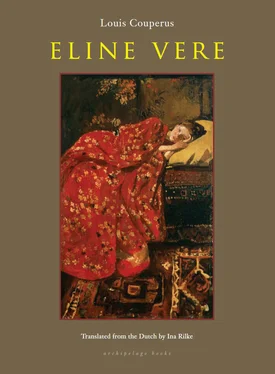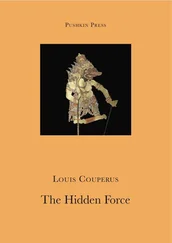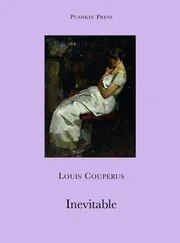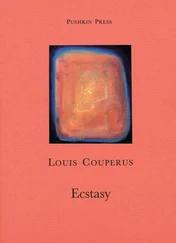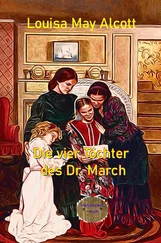‘That leaves you butting your heads together like a pair of stubborn goats, just because you both have breeding,’ Marie exclaimed. ‘Very sensible, I must say! No, Freddie, be honest, why don’t you admit that you misjudged his character, then you can set things right. What do you have against him, anyway? His egotism? All men are egotistic, so how can you expect him to be any different! Try and be sensible, take things as they are. I am not referring to your brothers, mind: Otto is in a class of his own, and besides,’ she continued, lowering her voice almost to a whisper, ‘besides, Otto has been through so much. As for Etienne, he’s still a boy, he’s good and kind, but only a boy nonetheless. So it’s no use comparing Paul with them; just think of Paul as someone who happens to have money and who simply wants to enjoy life. I’m not saying that Paul has a strong character, that he’s his own man, quite the opposite, in fact. I’m saying he’s a bit weak.’
‘I could never love a man who is weak,’ responded Freddie gruffly.
Marie put her arm around Freddie’s shoulder.
‘My dear Freddie,’ she said, ‘after everything you’ve told me, you can’t expect me to believe that you’re not in love with him. He may be weak, he may be an egotist, he may be anything under the sun — but it’s quite obvious that you love him.’
‘Yes,’ said Freddie, with a rueful smile. ‘I suppose I do. You are right. I’ve already confessed to Mathilda that I love him, faults and all. I didn’t tell you before because you rose to his defence, and it was such a relief to hear you do so.’
‘Well, let me write him a letter, then.’
‘No!’ said Freddie. ‘You must promise me you won’t write to him. Not ever. I don’t want you abusing my confidence. I have been very foolish, I have thrown away my chance of happiness, and I will suffer for it. That is as it should be.’
The summer drew to a close without Paul and Freddie meeting again. The Howards went back to London, Hetty and the boys returned to their respective boarding schools, and Marie, too, took her leave. Freddie soon received a letter from Marie in The Hague, with news of Paul: he had fallen in with a group of artists in Rome and had rented a studio there in which to paint.
However, when the Van Erlevoorts returned to The Hague in October, Frédérique heard that Paul was no longer painting in Italy. He was reported to have taken up residence in the town of Bodegraven, where he had found a position in local government, and that he was planning to become a mayor.
Dr Reijer had urged Eline yet again to find an occupation of some kind to distract her from the melancholy she languished in from morning till night. Eline had blamed her lethargy on the hot summer weather, which she found oppressive. Now that the leaves had begun to fall and the cool breezes of autumn refreshed her face, it seemed to her that she could breathe more freely, and she declared her resolve to find something to do with her time. Madame van Raat continued to regard Eline with anxiety, for her rasping, hacking cough had returned along with the improvement in her humour. In the meantime she had begun to lavish far more care on her appearance again, and took to practising diligently on the new Bechstein piano. But music alone did not satisfy her, and she looked further afield for something to do.
Although she had neglected her acquaintances of late, she still saw them from time to time at Betsy’s salons. On one of these occasions she agreed, out of sheer ennui, to accompany the Honourable Miss Eekhof, an elderly maiden aunt of Ange and Léonie, to a service in the French chapel the following Sunday. She had not been there for years, and on the Saturday felt so disinclined to go that she was on the point of sending the honourable lady a note to excuse herself. Madame van Raat, however, would not hear of it, so Eline obliged. There was a new preacher, with large, dark, soulful eyes and pale, aristocratic hands. Eline returned home all excited, full of news about the wonderful sermon and how she had hung on to the preacher’s every word. Her only regret was that the interior of Protestant churches was so bare, and the singing so poor, oh, if only she were Roman Catholic, then her soul would have been borne aloft on the wings of a soaring Ave Maria or Gloria in Excelsis , she would have been able to lose herself in the mystical splendour of the altar and the holy sacrament, she would have swooned away in the theatrical piety diffused by clouds of incense.
But she was not Roman Catholic, so she had to make do with her French chapel, going there several times in the company of the Eekhof girls’ maiden aunt. Before long she was in attendance every Sunday, nodding gravely at her acquaintances with a soft, melting look in her eyes and a sorrowful cast to her closed lips, and word of Eline Vere’s astonishing, newfound piety spread quickly in The Hague.
Miss Eekhof was on the committee of numerous ladies’ associations devoted to good works, and it took little persuasion on her part to induce Eline to join two of these charities. She was even, at Miss Eekhof’s instigation, appointed to the board overseeing the crèches for the children of paupers, which kept her occupied on fixed days. She spent a whole week working hard for a fancy fair, without however going so far as to participate in the sale of items on the day itself. And the honourable lady frequently persuaded Eline to accompany her on her visits to the poor.
At first she found a certain fulfilment in her virtuous, philanthropic pastimes, but before the month was out she found herself getting bored by the preacher’s repetitive style of officiation; she could predict the exact moment at which he would raise his eyes to heaven during a hymn, the exact gesture his pale hand would make for the benediction. The singing set her nerves on edge, for the voices were hoarse and untrained, and she was increasingly irked by the plainness of the white-walled interior with its lectern and wooden pews. She began to have misgivings about the congregation, suspecting them of hypocrisy. The preacher was probably a hypocrite, too, and so were the high-and-mighty deacons; the same could be said of Miss Eekhof, sitting beside her — and Eline herself, with her melting eyes and grave expression, was no better.
From Miss Eekhof she had heard about all sorts of petty disagreements and rivalries existing between the ladies governing the various institutions, which made her wonder about the good they professed to be doing. The entire notion of good works became odious to her; she found herself unable to believe in the sincerity of any of the ladies of her recent acquaintance, not even the ones who had become friends; they were all insincere and self-serving, every one of them; they all had their secret motives, thinking only of themselves under the guise of helping others. Quite what those motives were she could not tell, but they all had them, of that she was certain.
The visits to the poor in the company of the elderly maiden aunt now filled her with revulsion. Their crowded, airless dwellings, the misery and privation, constricted her throat, and she felt she would suffocate to death if obliged to spend a single day in such filthy, cramped conditions. Having lost her trust in the bountiful ladies, she now distrusted the poor themselves. She had read somewhere that there were people in London who posed as beggars while secretly possessing vast amounts of money, which they spent on lavish feasts with streams of champagne and beautiful women. All the paupers to whom she and Miss Eekhof dispensed alms actually had hoards of jewels and gold sewn into their repulsive mattresses, and whether their response was grovelling gratitude or dumb brutishness made no difference; it was sham, like everything else about them.
Читать дальше
